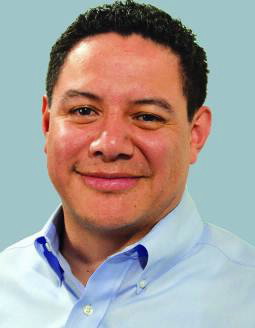EMBARGOED FOR RELEASE | April 07, 2013
Communicating the science of the ‘6X°C egg’ — and much more
Note to journalists: Please report that this research was presented at a meeting of the American Chemical Society.
NEW ORLEANS, April 7, 2013 — Why does the “65-degree egg” and its “6X°C” counterparts continue to entice chefs and diners at chic restaurants, when the science underpinning that supposed recipe for perfection in boiling an egg is flawed?
It all boils down to the need for greater society-wide understanding of basic scientific concepts, an expert said here today at the 245th National Meeting & Exposition of the American Chemical Society, the world’s largest scientific society. And in one of the keynote addresses at the meeting, which features almost 12,000 scientific reports, CÉsar Vega, Ph.D., explained why cooking ranks as an ideal way of fostering broader awareness about science.
“Cooking is chemistry, and the kitchen is a laboratory,” said Vega. “Cooking and food are the single most direct and obvious personal experiences that people have with chemistry. Food is personal. Food is fun! Seemingly simple foods like cookies, fondue and eggs help illustrate key scientific principles. Why are some cookies chewy and others crunchy — or even better, both at the same time? Why do egg whites whip better if we add cream of tartar? Why does Gruyère cheese make the perfect fondue? The sights, the smells, the textures of food can help people remember the science.”
Media Contact
During April 5-10 the contacts can be reached at 504-670-4707.
Michael Bernstein
202-872-6042
m_bernstein@acs.org
Michael Woods
202-872-6293
m_woods@acs.org
The fascination by both diners and chefs de cuisine with that “6X°C” egg is a good example, said Vega, who has a Ph.D. in food science, culinary training from Le Cordon Bleu, and is research manager at Mars Botanical, a division of Mars, Incorporated. Vega also co-edited, with Job Ubbink and Erik van der Linden, The Kitchen as Laboratory: Reflections on the Science of Food and Cooking.
Heating an egg may seem like the simplest form of cooking, next to boiling water, Vega pointed out. But the best way of doing so remains a surprisingly contentious issue among great chefs. Eggs are a gastronomic enigma because the ovotransferrin and ovalbumin proteins in the white begin to coagulate or solidify at around 142 and 184 degrees Fahrenheit, respectively. The phosvitins and other egg yolk proteins, however, can start thickening even at temperatures as low as 130 degrees F. So what’s the right temperature for the perfect egg?
Vega explained that some professional cooks have taken a relatively new approach by cooking eggs in temperature-controlled water circulators. Using these devices, chefs cook eggs at relatively low temperatures (such as 60 degrees C, or 140 degrees F), for relatively long periods of time (at least 1 hour). And what Vega terms the “6X°C egg” is now ubiquitous on menus in chic restaurants. The “X” varies depending on the cook, but usually is from 0 to 5, such as the “65°C egg.” But chefs claim that temperature alone translates into the perfectly cooked egg, and cooking time — one hour or three hours — does not matter.
“The idea that cooking time does not matter is nonsense,” Vega said, citing research he did and published in the peer-reviewed journal Food Biophysics that debunked the idea. It carefully documented that the texture of a cooked egg yolk depends on both temperature and time. The study gives chefs precise numbers of the time and temperature combinations needed to cook eggs to whatever firmness they want.
Eggs certainly are not the only entry on the menu of scientific misconceptions in the kitchen. Vega pointed out that research published last year challenged time-honored ideas about the browning of sugar, known as caramelization. Everyone thought that sugar had to first melt before undergoing that mouth-watering transformation into caramel. The new research showed, however, that sugar can caramelize when heated while it's still solid.
“It’s dismaying to think that so many could be so wrong for so long about what actually happens to such basic ingredients like sugar or eggs during cooking,” Vega said. “But it also provides a rare opportunity to rethink the possibilities of the basic, and to communicate accurate information and the fun and excitement of science to the public.”
A special one-hour webinar, Live Cooking Demo: Egg Science Deconstructed, will be held on this topic. It will feature Vega and Shirley Corriher. For journalists who are onsite for the meeting, the webinars will be broadcast live on Monday, April 8, at 11 a.m. Eastern time in Hall D-1 of the Ernest N. Morial Convention Center. Those not in New Orleans for the meeting can tune in live online at http://acswebinars.org/new-orleans-live.
To automatically receive news releases from the American Chemical Society contact newsroom@acs.org.
###


